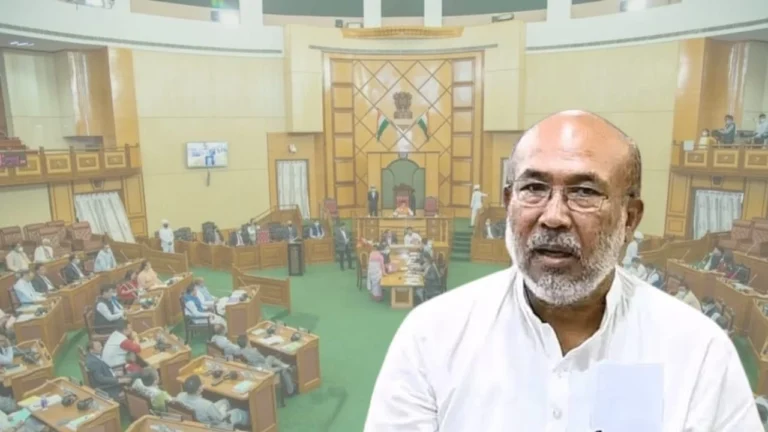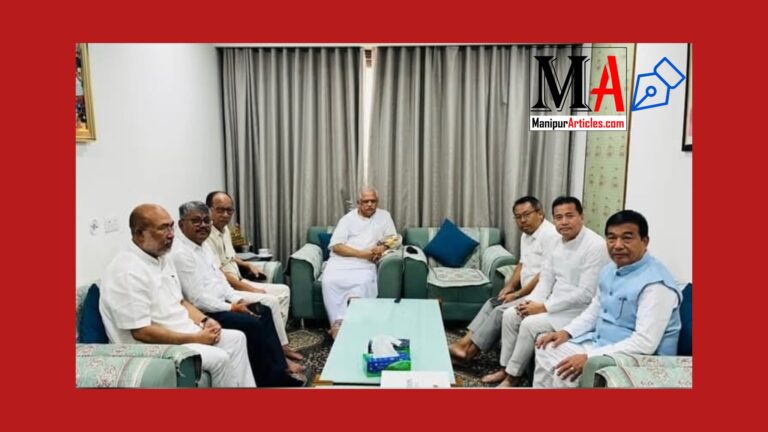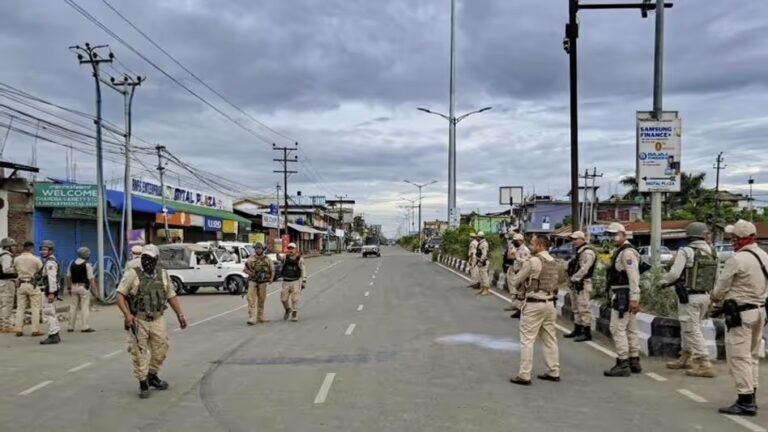Mass Hunger Strike in Manipur: A Stand for Justice
Summary
The All India Forward Bloc has announced a mass hunger strike starting December 11 to address the ongoing turmoil in Manipur. The protest aims to pressure the state and central governments into taking decisive actions, including disarming militants and supporting displaced citizens. This strike coincides with the upcoming Parliament session and seeks to draw national attention to Manipur’s crisis.
The Full Story: Unraveling the Mass Hunger Strike
Why Is Manipur at the Center of Attention?
Manipur, a state nestled in India’s northeastern region, has been grappling with a prolonged crisis. From ethnic clashes to militant activities, the state has witnessed turmoil that has upended the lives of countless residents. The ripple effects of this unrest—displacement, financial instability, and loss of lives—have painted a grim picture of the region.
Now, the All India Forward Bloc is stepping up. Their announcement of a mass hunger strike is a desperate plea to awaken a nation that seems to have turned a blind eye. But why now, and what do they hope to achieve?
The Hunger Strike: More Than a Protest
A hunger strike is no small undertaking. It’s a method of protest as old as history itself, a way for the powerless to hold those in power accountable. Starting December 11, this strike isn’t just about skipping meals—it’s about sending a clear message to the central and state governments.
The Forward Bloc has laid out a six-point memorandum, making their demands crystal clear:
- Immediate cessation of violence – Manipur’s streets need peace, not chaos.
- Disarming militants – Unregulated groups pose a grave danger to civilians.
- Justice for the displaced – Thousands of families have been uprooted, their homes turned into ashes.
- Financial assistance – Rebuilding lives isn’t cheap; the government must step in.
- Policy-level changes – Band-aid solutions won’t fix systemic issues.
- Broader participation – A call for unity among political parties and citizens alike.
Why December 11? Timing Is Key
The date isn’t arbitrary. December 11 aligns with the upcoming Parliament session, ensuring that the strike coincides with the peak of political activity. By timing their protest with this session, the Forward Bloc aims to shine a spotlight on Manipur’s plight, compelling lawmakers to address it head-on.
What Makes This Protest Unique?
Protests are not new to India’s political landscape, but this hunger strike carries a unique weight. It’s not just about Manipur—it’s about human rights, accountability, and the power of collective action. Think of it as a stone dropped into a pond, with ripples that could reach far beyond the state’s borders.
The Bigger Picture: A Crisis Ignored
For many in the rest of India, Manipur feels like a distant reality. The northeast often exists on the periphery of national conversations, its challenges overshadowed by other pressing issues. But this hunger strike is a wake-up call. It’s a reminder that no region is too far-flung to matter, and no citizen is too insignificant to deserve justice.
What Can We Expect Next?
As December 11 approaches, anticipation builds. Will the hunger strike succeed in galvanizing the nation? Or will it be another protest drowned out by the noise of political maneuvering?
The Forward Bloc has urged citizens, activists, and other political parties to join them. If enough voices echo their demands, it could pave the way for meaningful change.
What This Means for India
The Importance of National Attention
Manipur’s crisis is not just a regional issue—it’s a reflection of the challenges facing India’s democracy. Marginalized communities, unchecked violence, and government inaction are problems that resonate across the country.
How You Can Help
Feeling inspired to act? Start by spreading the word. Share updates on social media, write to your local representatives, or join solidarity movements in your area. Every small step counts.
The Role of Solidarity
Unity is the backbone of any successful movement. As citizens of a democratic nation, we must stand together to ensure no voice goes unheard, especially one as desperate as Manipur’s.
FAQs
1. What is the purpose of the mass hunger strike in Manipur?
The hunger strike aims to pressure the government into taking immediate action to resolve the ongoing crisis, disarm militants, and support displaced families.
2. Why did the All India Forward Bloc choose December 11 for the protest?
December 11 coincides with the Parliament session, maximizing the chances of drawing national attention to the crisis.
3. How can ordinary citizens support the cause?
People can spread awareness, participate in solidarity events, or advocate for the issue with their local representatives.
4. What are the main demands of the Forward Bloc?
The demands include ending violence, disarming militants, providing financial relief to displaced families, and ensuring systemic changes to prevent future unrest.
5. Why is this protest significant beyond Manipur?
The strike highlights broader issues of governance, human rights, and the need for national attention on marginalized regions.



